Filter by topic and date
How Many Words is Running Code Worth?
- Charles Eckel IETF Hackathon Co-chair
19 Aug 2019
We have all heard the the saying, “A picture is worth a thousand words.” In that case, how many words is running code worth? Based on recent IETF Hackathons, I would estimate the number to be much higher.
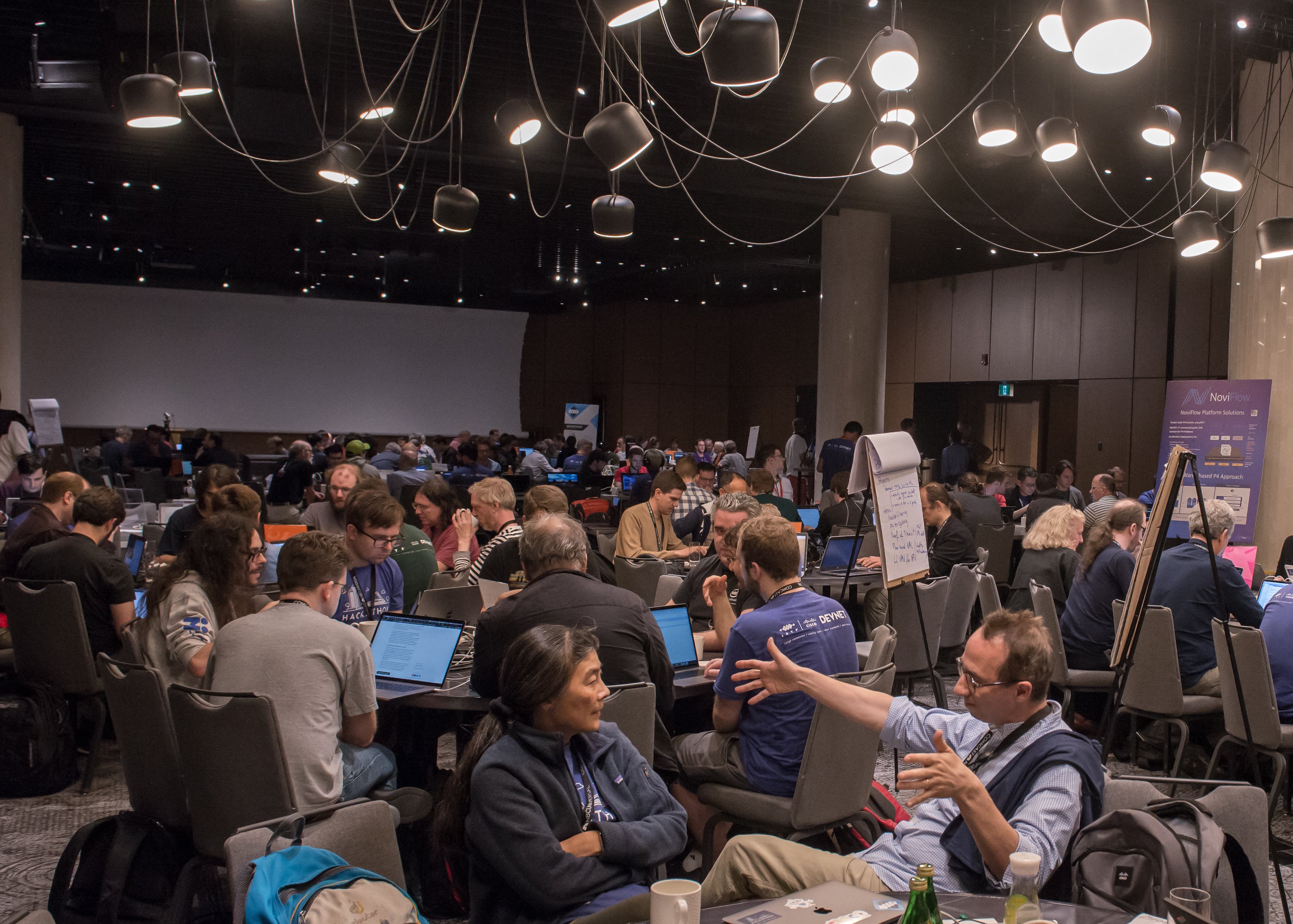
The first thing that typically comes to mind when thinking of the IETF is Internet standards, published as RFCs. RFCs are the basis on which the Internet as we know it is built. RFCs are evidence of the importance of words, especially carefully crafted and reviewed words that specify what each network protocol does and how it works. The IETF Hackathon promotes running code to complement existing RFCs and accelerate the creation of new network protocols that improve the functionality, manageability, and security of the Internet.
IETF 105 was a return trip to Montreal, having been here the same time last year for IETF 102. As has become the tradition, the IETF meeting kicked off with an IETF Hackathon. The first IETF Hackathon, at IETF 92 in Dallas, had around 40 participants working on 6 projects related to a few IETF working groups. At the IETF 105 Hackathon, July 20-21 in Montreal, over 300 participants worked on over 40 projects representing most IETF working groups. These included projects on QUIC, MUD, TLS 1.3, YANG, NETCONF, RESTCONF, DNS, DNS over HTTP, WebRTC, and many more.
Writing and reviewing Internet-Drafts is still a critical activity before, during, and after each IETF meeting, but thanks to the IETF Hackathon, there is now an agreed upon time and place to come together to focus on running code, code that tests theories, implements experimental algorithms, and verifies interoperability (or the lack thereof). This has not only improved the pace and quality of IETF standards, it has opened the doors to new forms of contribution and a new group of contributors, people who excel in software development and now find it easier and more rewarding to participate in the standardization process.
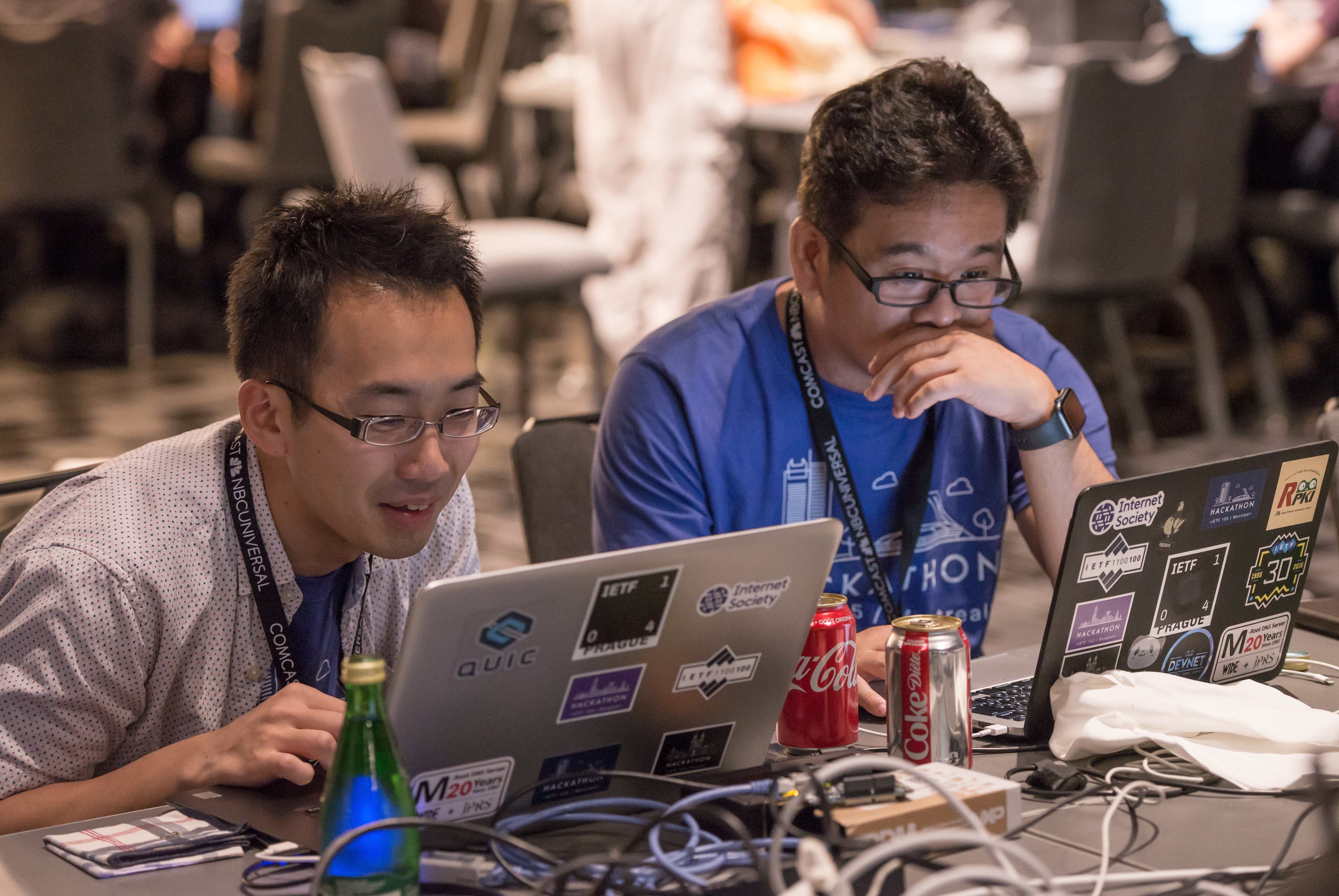
IETF Hackathons are collaborative events with a shared goal of moving IETF work forward. Commemorative t-shirts and laptop stickers are prized takeaways from the event. IETF veterans work side by side with newcomers, exchanging ideas and collaborating on code. This is a great way for newcomers, especially developers interested in networking, security, and other IETF technologies, to have a welcoming experience and start making significant contributions immediately.
Insights gained during the hackathon are captured and shared in short presentations at the end of the hackathon. These presentations are recorded and the materials are available via the IETF Hackathon GitHub. Relevant findings are brought back into working group meetings that run throughout the following week. This accelerates the standardization process and leads to better standards that are more complete, more precise, and easier to implement.
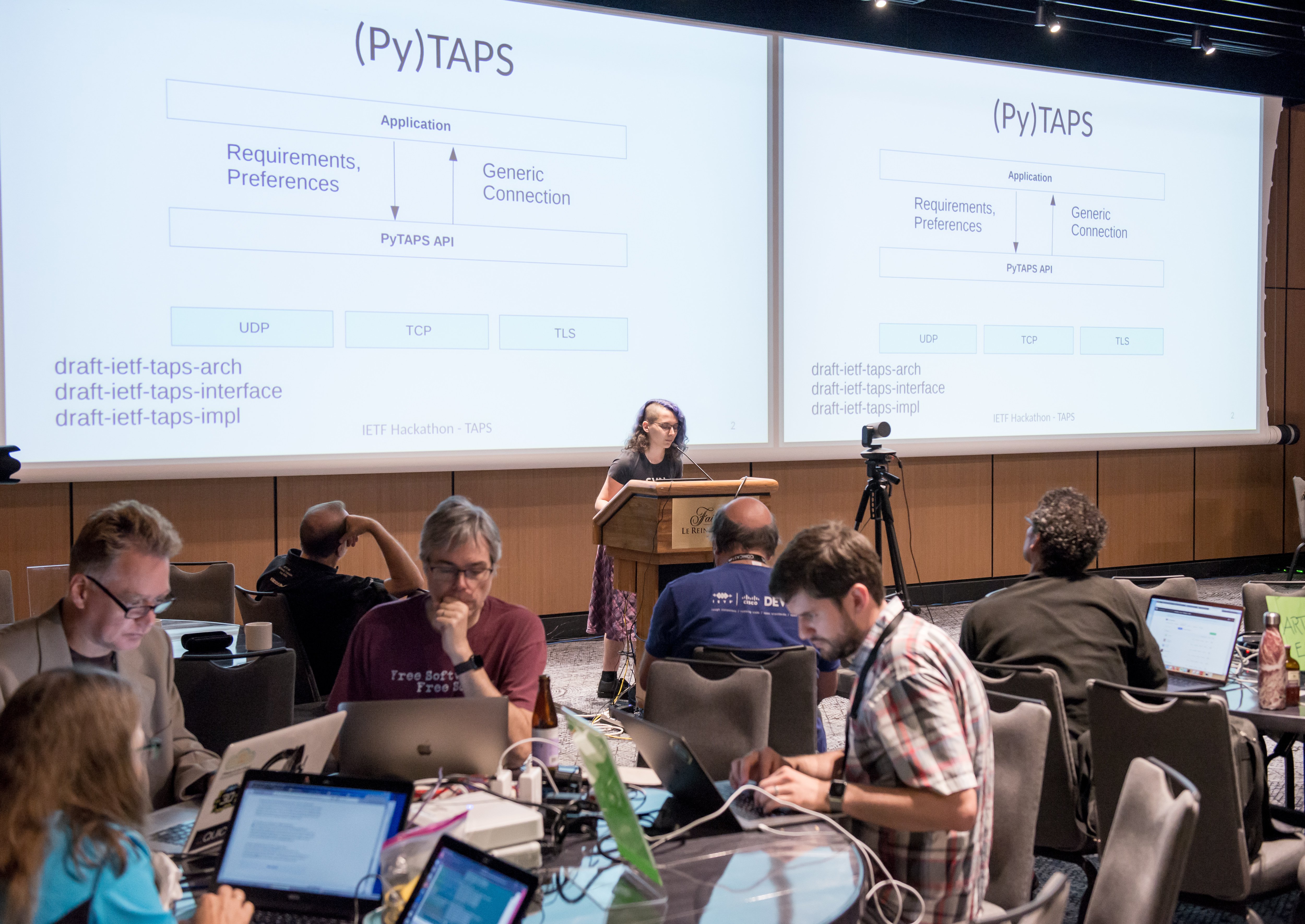
were able to work with the SCE group, some of the TLS group, and also
reach out to open source projects who gave us feedback on our proposed
implementations. Without the IETF hackathon, this would have been hard
to do.”
– Loganaden Velvindron, cyberstorm.mu team working remotely from Mauritius
– Anton Venema, WebRTC 1.0 improvements and testing team
Hackdemo Happy Hour
In the interest of time, presentations at the end of the hackathon are limited to three minutes. They are meant to be conversations starters that highlight:
- What problem you tried to solve
- What you achieved
- Lessons learned, feedback to working group
- Collaboration with open source communities and other SDOs
The following evening, we held Hackdemo Happy Hour. This provided an opportunity for teams to polish their projects and presentations, and then engage in more detailed conversations with the IETF community, including people not at the hackathon. This is a fun way to extend the reach of the hackathon by helping people connect, share information, and discover areas of common interest.
More information about all the projects at the hackathon can be found on the IETF Hackathon wiki.
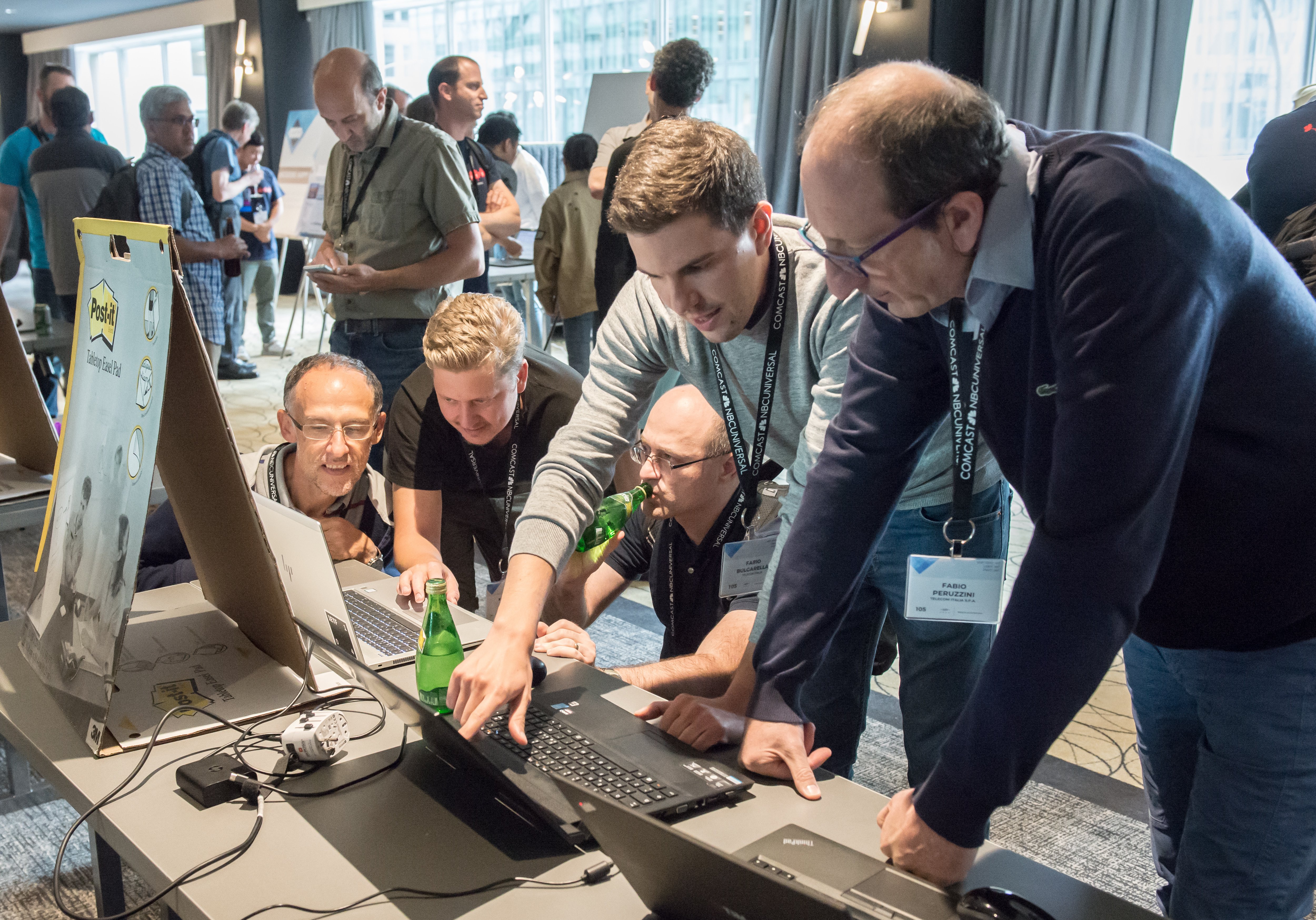
Thank you to sponsor and supporters
Huge thanks to ICANN, for both sponsoring this hackathon and stepping up to sponsor the next two hackathons as well. We greatly appreciate this sponsorship, and we welcome and encourage additional sponsors for future hackathons to ensure it remains a free event accessible to everyone. Cisco DevNetsponsored and ran the first several hackathons and continue to be big hackathon supporters. NoviFlow provided valuable support as well, making software licensing available for P4 programming tools.
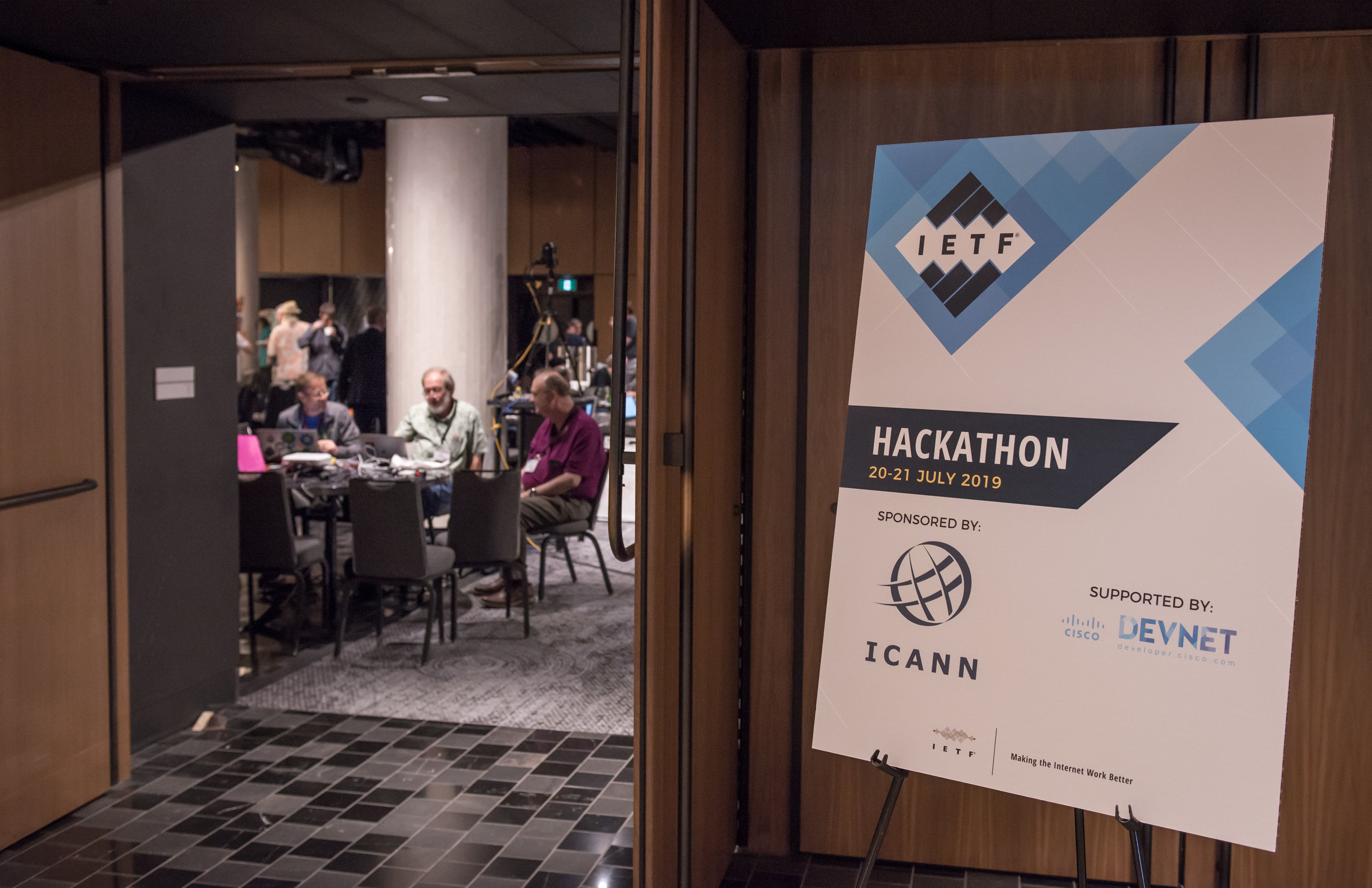
– Marc LeClerc, Noviflow
Next IETF Hackathon
The next IETF Hackathon is scheduled to be held 16-17 November 2019 in Singapore, just before IETF 106. If you're interested in making the Internet work better through running code, I hope to see you there!
Photos © Stonehouse Photographic/IETF LLC